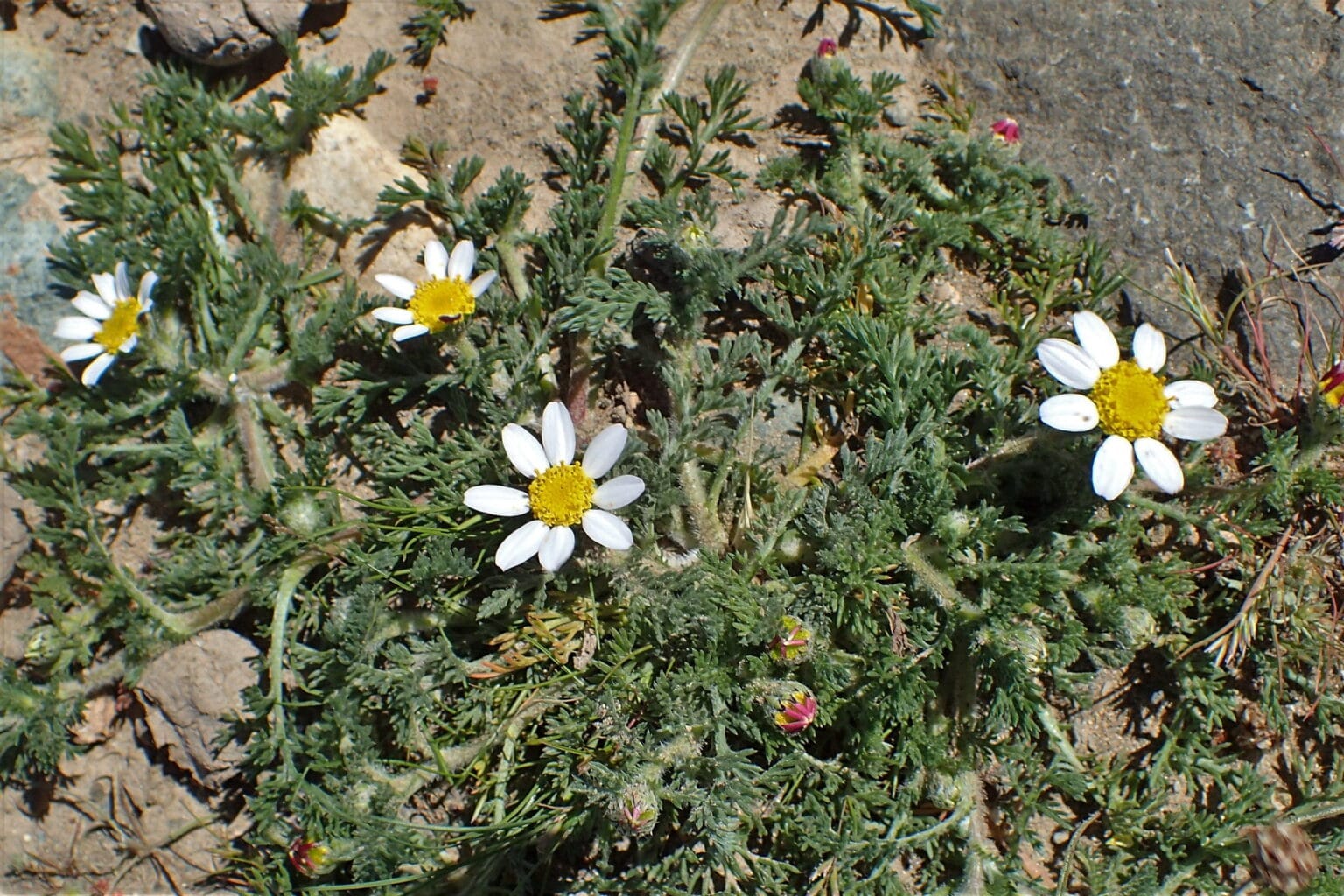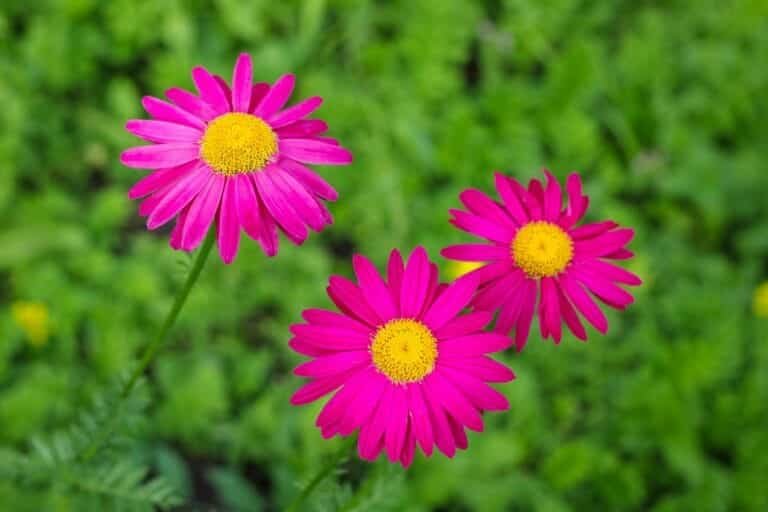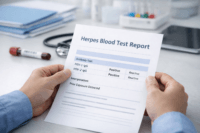- Ayurvedic Pharmacodynamic Profile (Rasa Panchaka)
- Action on Dosha (Functional Regulatory Systems)
- Action on Srotas (Physiological Channels)
- Classical Indications with Samprapti (Pathogenesis)
- Majja Dhatu (Nervous Tissue) Rejuvenation
- Vajikarana (Reproductive Vitality Enhancement)
- Classical Formulations Containing Akarkara
- Dosage and Method of Administration
- Pathya (Compatible Diet and Lifestyle)
- Contraindications
- Patient Selection in Classical Practice
- Contemporary Clinical Correlation
- Safety and Medical Supervision
- Fever and Cold Relief
- FAQ: Akarkara (Anacyclus pyrethrum)
- References
Akarkara (Anacyclus pyrethrum) is a well-known medicinal root in Ayurvedic pharmacology classified under drugs that pacify Kapha and Vata dosha, the functional principles governing structural stability and neural movement respectively. It is described in the classical lexicons as a powerful stimulant of the oral cavity, digestive metabolism and the nervous system, with a special action on Majja Dhatu (the nervous tissue system) and Shukra Dhatu (the reproductive tissue) [1].
Because of its penetrating and hot potency, it is traditionally used in disorders where Kapha obstructs the normal movement of Vata, producing:
- Facial paralysis
- Neuromuscular weakness
- Loss of speech clarity
- Sexual debility
- Chronic cold and mucus accumulation
- Low digestive metabolism
Classical Synonyms and Their Pharmacological Meaning
In the Ayurvedic Nighantus (materia medica), Akarkara is described with multiple names, each reflecting its therapeutic activity:
Akarakarabha
Vahnidanti
Jihvya
Vajradanti [1]
Vahnidanti indicates its ability to stimulate Agni (digestive and metabolic fire).
Jihvya indicates activation of the tongue and salivary glands.
Vajradanti indicates strengthening of the teeth and oral tissues.
These synonyms collectively establish its primary field of action in the oral cavity, digestive system and neural pathways.
Ayurvedic Pharmacodynamic Profile (Rasa Panchaka)
Taste (Rasa): Pungent
Qualities (Guna): Light, dry, sharp
Potency (Virya): Hot
Post-digestive effect (Vipaka): Pungent [1]
These attributes explain its actions:
- Kapha-reducing
- Vata-normalizing when obstructed
- Digestive stimulant
- Channel-cleansing
- Nervous system activator
- Reproductive tissue enhancer
Action on Dosha (Functional Regulatory Systems)
Akarkara reduces Kapha dosha, which is responsible for heaviness, mucus and stagnation, and corrects Vata when its movement is blocked by Kapha. This mechanism is essential in neurological and neuromuscular disorders where loss of movement is associated with structural obstruction [2].
Action on Dhatu (Body Tissue Systems)
Majja Dhatu – nervous tissue and neural conductivity
Shukra Dhatu – reproductive vitality
Rasa Dhatu – primary nutritional tissue through improved digestion [3]
Action on Srotas (Physiological Channels)
Pranavaha Srotas – neuro-respiratory pathways
Annavaha Srotas – digestive tract
Majjavaha Srotas – nervous system pathways
Shukravaha Srotas – reproductive channels [3]
Classical Indications with Samprapti (Pathogenesis)
Ardita (Facial paralysis)
Ardita occurs when Kapha obstructs Vata in the facial region. Akarkara removes the obstruction due to its sharp and penetrating quality and restores neural movement [4].
Apatantraka (convulsive neurological disorder)
This condition is described as Kapha blocking neural pathways. Akarkara stimulates the nervous system and clears the obstruction [4].
Hanu Graha (jaw stiffness) and Danta Shoola (tooth pain)
Local application produces:
- Kapha liquefaction
- Pain relief
- Improved circulation [1]
Klaibya (erectile dysfunction due to tissue depletion)
When Shukra Dhatu is weakened and neural stimulation is low, Akarkara enhances reproductive vitality by:
- Stimulating Majja Dhatu
- Activating Shukra metabolism [5]
Mandagni (low digestive metabolism)
Because of its pungent taste and hot potency it stimulates digestive fire and improves nutrient assimilation [2].
Majja Dhatu (Nervous Tissue) Rejuvenation
Majja Dhatu depletion produces:
- Dizziness
- Fatigue
- Loss of coordination
- Neural weakness
- Tremors [3]
Akarkara acts through:
- Penetrating micro-channels
- Removing Kapha obstruction
- Restoring Vata movement in neural pathways
This explains its traditional use in:
- Hemiplegia
- Neuromuscular disorders
- Speech impairment
Vajikarana (Reproductive Vitality Enhancement)
Shukra Dhatu is nourished through proper digestion, functional nervous tissue and clear reproductive channels. Akarkara supports all three:
- Improves metabolic fire
- Stimulates neural response
- Activates reproductive tissue [5]
Animal studies also demonstrate increased spermatogenesis and androgenic activity, supporting the classical indication [6].
Use in Oral and ENT Disorders
In Kapha-dominant disorders of the mouth and throat:
- Excess salivation
- Loss of taste
- Chronic mucus
Akarkara is used for local application and gargling to produce:
- Kapha liquefaction
- Pain reduction
- Improved glandular function [1].
Classical Formulations Containing Akarkara
Akarkara is added to compound formulations for:
- Nervous stimulation
- Bioavailability enhancement
- Kapha obstruction removal [2]
It is administered in:
- Powder form
- Medicated ghee
- Nasal therapy for neurological disorders
Dosage and Method of Administration
The dose varies according to:
- Body constitution
- Digestive strength
- Disease stage
- Age and vitality
Traditional carriers:
With ghee – neurological depletion
With milk – reproductive weakness
With honey – low digestion
With warm water – Kapha disorders [2]
Pathya (Compatible Diet and Lifestyle)
Recommended:
- Ghee
- Milk
- Green gram
- Meat soup in depleted individuals
To be avoided:
- Excessively dry food
- Excess sour food
- Alcohol overuse [3]
Contraindications
Because of its hot and sharp potency it is avoided in:
- Hyperacidity
- Bleeding disorders
- Inflammatory Pitta conditions
- Pregnancy [2]
Patient Selection in Classical Practice
Ideal candidates:
Kapha-Vata constitution
Low digestive fire
Neuromuscular weakness
Reproductive tissue depletion [3]
Contemporary Clinical Correlation
The classical indications correspond to patterns seen in:
- Facial nerve dysfunction
- Neuromuscular fatigue
- Motor speech weakness
- Functional sexual debility
- Chronic mucus respiratory states
The Ayurvedic approach corrects the functional disturbance rather than suppressing isolated symptoms.
Safety and Medical Supervision
Akarkara is a potent drug and must be administered only after:
- Constitutional assessment
- Disease stage evaluation
- Digestive strength assessment
Unsupervised use may cause:
- Mucosal irritation
- Excess heat symptoms
- Gastric aggravation [2]
Akarkara: An Ancient Herb with Greek Origins and Medicinal Uses
Akarkara, a well-known herb in Arabia and India, is curiously absent from ancient Ayurvedic texts such as those by Charaka, Sushruta, and Vagbhata. However, it finds mention in medieval texts like Bhavprakash and Sharngdhar, suggesting that its knowledge might have been brought to India by Greek sages. The Greek physician Dioscorides referred to this herb as “Peon,” a name that evolved into the Latin term “pyrethrum.”
In Greek medicinal texts, Akarkara is categorized alongside four similar herbs in the Babuna class, including Baboona jarumi and Baboona stinko, known as Chamomile Gavachashan and Chamomile Spanish in Greek, and Pyrisma in Latin. Among these, Spanish chamomile, identified as Anacyclus pyrethrum in Latin, is recognized as the true Akarkara. This potent herb is cultivated in northern Algeria and select regions of India.
In India, two varieties of Akarkara are commonly found: Spilanthes oleracea and Spilanthes acmella. Akarkara is a small herb that thrives with the first rains of the monsoon. Its hairy branches bear yellow, beehive-shaped flowers, and its roots, measuring 2 to 4 inches long, have thick, brown, furrowed bark. Notably, this herb retains its potency for up to seven years, making it a valuable addition to traditional medicine.
Chemical Composition and Benefits of Akarkara
Chemical analysis of Akarkara has identified the presence of an alkaline compound called ‘alka-lide akarkarmin,’ along with resin and two types of oils—one permanent and one volatile. These elements give Akarkara its powerful anti-inflammatory, expectorant, aphrodisiac, carminative, and decongestant properties, making it an effective natural remedy for enhancing strength and vitality.
Ayurvedic Properties of Akarkara
In Ayurveda, Akarkara is recognized for its Ushnavirya (heating effect), Balakaraka (strengthening), and Charpara (stimulating) qualities. It is highly valued for its ability to reduce swelling, alleviate cold symptoms, and soothe coughs.
Greek Perspective on Akarkara
Greek scholars, including Punani Grampkar, classify Akarkara as dry and hot in the second stage of processing. Some experts extend this classification, considering it to remain dry up to the third or even the fourth stage. However, there are differing opinions, with some suggesting that it becomes cool in the third and fourth stages. It’s important to note that this herb’s effect on the lungs can be harmful, according to some Greek views.

Uses: Neurological Disorders
Akarkara is highly effective in treating neurological conditions due to its beneficial effects on the nervous system. It has shown significant benefits for nerve-related disorders such as Boshiti Pakshadham and Adit (facial paralysis). By enhancing neural function and clearing impurities caused by contaminated doshas, this herb supports the overall health of the nervous system.
Moreover, Akarkara’s potent Vata-balancing properties make it an excellent remedy for various joint and muscle-related ailments. When ground and mixed with olive oil for massage, it provides relief from conditions such as gouty arthritis, Vata-related headaches, frontal pain, hunchback, neck pain, and joint pain. Its soothing effects help alleviate discomfort and improve mobility in those suffering from these conditions.
Dosage:
For therapeutic use, the typical dosage of Akarkara powder is around 250 mg to 500 mg, taken twice daily. It is often recommended to take it with honey, ghee, or warm water to enhance its effectiveness and reduce any potential irritation.
When used in oil form for topical application, as in the treatment of joint pain or muscle aches, Akarkara can be ground and mixed with olive oil. Apply the mixture to the affected area and gently massage it in for relief.
It’s important to note that dosage may vary based on the individual’s health condition, age, and overall constitution. Consulting with a healthcare professional or Ayurvedic practitioner before starting any new herbal treatment is advised to ensure proper dosage and safety.
Fever and Cold Relief
Akarkara possesses strong diaphoretic properties, meaning it can induce sweating, which is beneficial in treating fever and cold symptoms. When cooked with olive oil and used for massage, it promotes sweating, helping to alleviate fever and clear congestion. Additionally, applying a warm decoction of Akarkara on the forehead or rubbing it on the palate can effectively relieve cold and cough symptoms, providing soothing relief and speeding up recovery.
Akarkara- A Versatile Herb for Dental Health, Respiratory Relief, Neurological Wellness, Paralysis and Epilepsy
Akalkara is also very beneficial in treating dental diseases. Keeping this decoction in the mouth strengthens the loose teeth. Similarly, soaking its root in vinegar and pressing it under the tooth destroys caries. Rubbing its powder on the tongue removes stiffness of the tongue and eliminates stuttering.
This medicine is also beneficial in treating whooping cough. By making a decoction of it and inhaling it helps in curing chronic whooping cough. Similarly, by inhaling its fine powder, the blockage caused due to blocked nose is removed.
This medicine also shows its effect on diarrhea and stomach related diseases. Use of this medicine is beneficial in diseases like diarrhea, teething problems, colic etc. in children. Taking its full powder with dry ginger helps in getting rid of heartburn and restlessness. Its use also helps in ascites. By swallowing its fourteen ratti dose, it forcefully removes phlegm through laxative. If barkra is chewed before drinking any laxative or purgative medicine, it removes the danger of drinking the medicine. By taking this herb, the voice of children and singers becomes melodious.
According to Karmal Chorash, the root of this plant is considered nutritious. It is given in case of paralysis, it is also given in case of paralysis. It is also used for epilepsy and epilepsy. This is also given in Kampavat. It is considered to sharpen the speech power of children. But there is no scientific barrier to all these assumptions. If taken as a gargle to cure rotten teeth, the root of its root proves useful. In case of throat diseases and inflammation of palatine glands and tonsillitis, it is cured.
Uses and preparations – Suvmi Akalkara 1 tola, Indrayan root 6 masha, Nausadar 1 masa, Syahu cumin 6 masa, Kutki 1 tola, black pepper 1 tola, take the powder of all these medicines daily in the morning and evening to remove the accumulated defects.
Akarkaradi bati-Akarkara four parts, nutmeg three parts, cloves two parts, cinnamon three parts, peep lamool two parts, saffron two parts, opium one part, bhang four parts, liquorice four parts, figure bark five parts, bivibund three parts- After completing all this, mix five parts of honey and the remaining water in it and grind them to make tablets ranging from half ratti to 22 ratti. These pills can be used to cure teething troubles, diarrhoea,
It is beneficial for colic and yaman. Ratti enhancing paste – Nutmeg, Taj, Malkangani, Bakalkara, Bhimsenikapur, Jaipatri, Clove, all these one each.
Take five parts of rangamahi and finely powder it and filter it in a cloth, then add the essence of rose to it.
Pour one portion and fill it in a bottle. For sexual arousal, this medicine is mixed with honey and applied on the penis. Child control paste-mercury, sulphur, balkar and camphor, and Suhani, all these things should be used by Anjana.
Making the same fine powder and applying it with honey before sexual intercourse prevents pregnancy. Both the pastes should be used except the front part of the penis. Tincture of Pyridhum Tincture of Pyridhum is made aseptically by fermentation.
Which is beneficial in many diseases like toothache, arthritis, epilepsy, paralysis, phlegm, spasticity, etc. According to the opinion of Bhav Prakash, anti-syphilis tablets, half tola of pure mercury, half tola of plum powder, half tola of goatberry powder, taking the tablets made by filtering all these with water, cures syphilis disease.
(Syphilis) is destroyed. Aloe vera oil – one teaspoonful of aloe vera powder should be taken with two seers of water.
When one-fourth of the water is left, then it should be drained and filtered, put in ten rupees worth of pure black sesame oil and returned from the slow fire. When the weight of the water gets burnt and only the oil is left, it should be cooled and filled in a bottle. Use of this oil cures all types of cold and cough.
Akalkaradi powder – Akalkara, rock salt, Chitrak, Amla, Ajwain and myrobalan, one parrot blossom and two tola dry ginger, all these should be sieved and powdered and then the spirit of Bijora or lemon juice should be added to it. Taking this powder three times a day in the morning and evening provides relief in diseases like pinnus, epilepsy, mania, cough, dyspnea, dyspepsia, anorexia etc.
Magic Yoga – Grinding Bakkara with Nausadar and rubbing it extensively on the palate and mouth creates such a void in the mouth that even if we fill the mouth with bungara, it does not burn. Many jugglers use this
They show amazing game of stuffing embers in the mouth. Representatives – For the treatment of liver diseases, in the absence of Akarkare, their representatives are Popper and Gahav and in case of stomach diseases, their representatives are Rasta and Agar. Munakka and Katira gum are prominent among the medicines that eliminate the symptoms of Akalkare.
While this medicine provides many types of divine benefits when given in appropriate quantity, when given in excess quantity it causes irritation in the mucous membrane of the intestines and causes problems like bloody diarrhea, convulsions etc. Therefore, it should be used wisely and in appropriate quantities only.
The Role of Akalkare in Sexual Health
Akarkara is renowned in Ayurveda for its potent stimulant properties, making it one of the most important herbs in the category of natural aphrodisiacs. These properties make Akarkara highly effective in enhancing sexual health and vitality, particularly for individuals with a cold constitution.
When Akarkara is used in combination with two other complementary herbs, it can significantly boost semen production, promote relaxation, and improve erectile function. This synergistic effect underscores its value in traditional Ayurvedic medicine as a natural remedy for sexual wellness.
Moreover, Akarkara oil, when applied topically to the male organ like a balm, further strengthens sexual power and enhances performance. This external application is particularly beneficial in increasing circulation and promoting overall sexual health, making Akarkara a versatile and powerful herb for those seeking natural solutions to sexual dysfunction.
Given its targeted benefits, Akarkara is especially recommended for individuals with a cold nature, as it balances and warms the body, supporting overall reproductive health. Its effectiveness in these areas has solidified its reputation as a vital herb in Ayurvedic practices focused on enhancing sexual well-being.
FAQ: Akarkara (Anacyclus pyrethrum)
What is Akarkara used for in Ayurveda?
Akarkara is traditionally used to support Kapha and Vata imbalance patterns. In classical Ayurveda it is mainly used for nerve and muscle weakness patterns, oral and throat conditions with mucus dominance, low digestive metabolism, and reproductive vitality support. Its use is personalized based on constitution, digestion, and disease stage.
Is Akarkara helpful for nerve weakness or facial paralysis?
In Ayurveda, conditions like facial paralysis are often explained as Vata dysfunction with Kapha obstruction. Akarkara is described as sharp and hot in potency, so it is used in traditional practice to help clear obstruction and support normal nerve movement. This must be guided by an Ayurvedic clinician because correct selection, dose, and carrier are critical.
Can Akarkara be taken for cold, cough, or chronic mucus?
Akarkara is traditionally used in Kapha-dominant cold patterns where mucus and heaviness are prominent. It is often used in small amounts within compound formulations or local use approaches. If there is burning sensation, severe acidity, or bleeding tendencies, it may be unsuitable.
How does Akarkara work according to Ayurvedic pharmacology?
Ayurveda describes Akarkara as pungent in taste, sharp in quality, and hot in potency. These traits are traditionally associated with stimulating digestion, clearing blocked channels, reducing excess mucus, and supporting nerve responsiveness. This is classical functional reasoning, not a guarantee of outcomes.
What is the safest way to take Akarkara, powder or formulation?
For most patients, the safest approach is using Akarkara within a clinician-designed formulation rather than self-dosing raw powder. The dose, carrier, and duration must match constitution, digestion, and symptoms. Improper use can cause irritation or excess heat symptoms.
Who should avoid Akarkara?
Akarkara is generally avoided in pregnancy, active gastritis or ulcers, severe hyperacidity, bleeding disorders, and strong inflammatory Pitta patterns such as burning, redness, mouth ulcers, or frequent nosebleeds. Children and very sensitive patients should only use it under supervision.
What are the possible side effects of Akarkara?
Possible side effects include mouth or throat irritation, burning sensation, acidity, nausea, and heat aggravation symptoms if the dose is excessive or the patient is not suited for hot and sharp herbs. Stop use and seek medical advice if symptoms worsen.
Can Akarkara be taken daily?
Daily use is not advised without professional guidance. Even when suitable, it is typically used for defined durations in individualized protocols. Long-term daily use without assessment increases the risk of irritation and heat-related side effects.
References
[1] Sharma, P. V. (2006). Dhanvantari Nighantu. Chaukhambha Orientalia.
https://archive.org/details/DhanvantariNighantu
Classical lexicon describing synonyms, pharmacological properties and oral indications of Akarkara.
[2] Sharma, P. V. (2011). Dravyaguna Vijnana, Vol. II. Chaukhambha Bharati Academy.
https://www.worldcat.org/title/dravyaguna-vijnana/oclc/650714598
Standard Ayurvedic pharmacology text detailing rasa, guna, virya, vipaka, dosage, therapeutic uses and contraindications.
[3] Agnivesha. Charaka Samhita, Sutra Sthana 28; Chikitsa Sthana 15.
https://niimh.nic.in/ebooks/ecaraka/
Explains Dhatu metabolism, Majja Dhatu function, Shukra Dhatu formation and pathogenesis of Vata disorders.
Plain meaning: establishes tissue nourishment sequence and the effect of Agni on all Dhatus.
[4] Vagbhata. Ashtanga Hridaya, Nidana Sthana 15.
https://archive.org/details/ashtangahridayam
Classical description of Ardita and neurological disorders caused by Vata obstruction.
Plain meaning: Kapha blocks Vata leading to paralysis.
[5] Bhavamishra. Bhavaprakasha Nighantu, Haritakyadi Varga.
https://archive.org/details/Bhavaprakasha
Details Vajikarana drugs and their action on reproductive tissue and vitality.
Plain meaning: drugs enhancing Shukra act through metabolism and nervous stimulation.
[6] Sharma, V., Boonen, J., Chauhan, N. S., Thakur, M., De Spiegeleer, B., & Dixit, V. K. (2013). Androgenic and spermatogenic activity of Anacyclus pyrethrum. Journal of Ethnopharmacology, 146(2), 363–371.
https://doi.org/10.1016/j.jep.2013.01.018
Animal study showing increased testosterone, sperm count and reproductive tissue activity.
Plain meaning: supports classical Vajikarana indication.












One Response
Thank you for sharing this ancient herbs information which is natural.